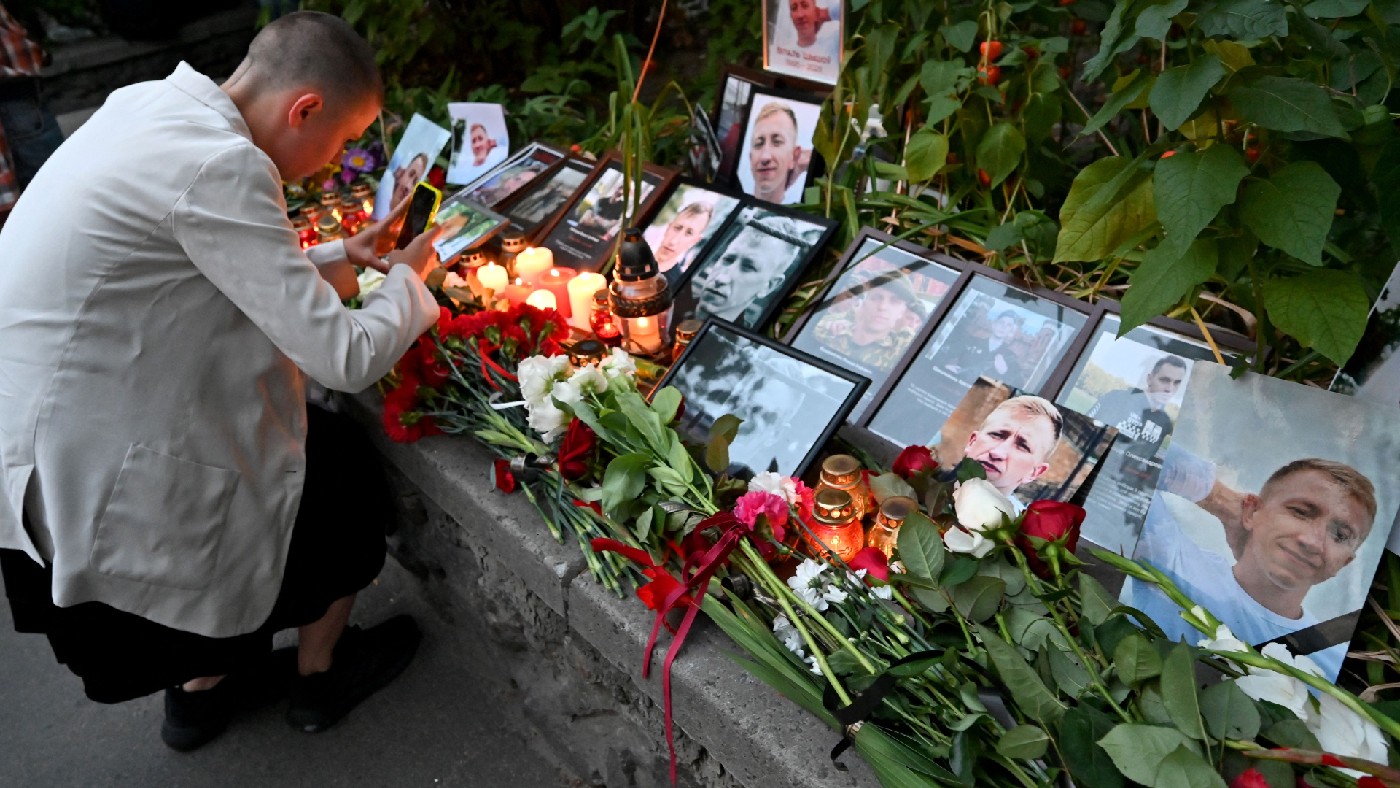Olympic sprinters and Ryanair planes: Belarus’s war on dissidents
For thousands of Belarusians living in exile, the message is chillingly clear: ‘no one is safe’

A free daily email with the biggest news stories of the day – and the best features from TheWeek.com
You are now subscribed
Your newsletter sign-up was successful
Vitaly Shishov left Belarus last year after joining protests against its autocratic leader, Alexander Lukashenko. He settled in Kyiv, where he ran Belarusian House in Ukraine, a nonprofit group to support people fleeing his home country.
But after leaving his home to go for a jog last Monday, “he never came back”, said Kvitka Perehinets in the Kyiv Post. The next day, he was found hanged from a tree in a park. His face was bruised, his nose broken. And while there’s no definitive proof he was killed, his organisation is in no doubt about who was responsible. “This was a planned operation of the Belarus security forces to liquidate a person truly dangerous for the regime,” it said.
He was found just a day after Belarusian Olympic sprinter Krystsina Tsimanouskaya was forced to take refuge in Poland’s embassy in Tokyo, saying she’d been taken to the airport against her will and was in fear of punishment after criticising her national coaches.
The Week
Escape your echo chamber. Get the facts behind the news, plus analysis from multiple perspectives.

Sign up for The Week's Free Newsletters
From our morning news briefing to a weekly Good News Newsletter, get the best of The Week delivered directly to your inbox.
From our morning news briefing to a weekly Good News Newsletter, get the best of The Week delivered directly to your inbox.
Shishov, who had recently complained of being followed, isn’t the first Belarusian opposition figure to be found hanged, said Kirill Krivosheev in Kommersant (Moscow): at least three others in the past 11 years have suffered the same fate. But he is the first to have been found in the territory of another state.
The alleged killing follows the arrest of activist Roman Protasevich following the forced landing of a Ryanair plane he was travelling on in Minsk in May, said Dmitry Solomchuk in Ukrayinska Pravda (Kyiv). It adds to the sense that Lukashenko, who quashed protests sparked by his disputed election win last year, will “stop at nothing to hold on to power”. Yet it could backfire, forcing the international community – not least Ukraine, which has close economic ties to Belarus – to cut diplomatic ties with Lukashenko’s regime and impose tougher sanctions.
As for Tsimanouskaya, her fear of retribution was wellfounded, said Jerzy Haszczynski in Rzeczpospolita (Warsaw). Several Belarusian athletes who supported the 2020 protests – including a champion kickboxer and a footballer – are in prison; others lost their jobs.
Tsimanouskaya is now in Poland, together with her husband. Many other Belarusians have fled to Lithuania, including opposition leader Svetlana Tikhanovskaya, who took on Lukashenko in last year’s poll (and held talks with Boris Johnson last week). These cases show that Lukashenko has no respect for borders in his quest to crush dissent, said Roman Olearchyk in the FT. For thousands of Belarusians living in exile, the message is chillingly clear: “No one is safe.”
A free daily email with the biggest news stories of the day – and the best features from TheWeek.com
-
 Are Hollywood ‘showmances’ losing their shine?
Are Hollywood ‘showmances’ losing their shine?In The Spotlight Teasing real-life romance between movie leads is an old Tinseltown publicity trick but modern audiences may have had enough
-
 A dreamy long weekend on the Amalfi Coast
A dreamy long weekend on the Amalfi CoastThe Week Recommends History, pasta, scenic views – this sun-drenched stretch of Italy’s southern coast has it all
-
 Can foster care overhaul stop ‘exodus’ of carers?
Can foster care overhaul stop ‘exodus’ of carers?Today’s Big Question Government announces plans to modernise ‘broken’ system and recruit more carers, but fostering remains unevenly paid and highly stressful
-
 The fall of the generals: China’s military purge
The fall of the generals: China’s military purgeIn the Spotlight Xi Jinping’s extraordinary removal of senior general proves that no-one is safe from anti-corruption drive that has investigated millions
-
 Epstein files topple law CEO, roil UK government
Epstein files topple law CEO, roil UK governmentSpeed Read Peter Mandelson, Britain’s former ambassador to the US, is caught up in the scandal
-
 Iran and US prepare to meet after skirmishes
Iran and US prepare to meet after skirmishesSpeed Read The incident comes amid heightened tensions in the Middle East
-
 Syria’s Kurds: abandoned by their US ally
Syria’s Kurds: abandoned by their US allyTalking Point Ahmed al-Sharaa’s lightning offensive against Syrian Kurdistan belies his promise to respect the country’s ethnic minorities
-
 Israel retrieves final hostage’s body from Gaza
Israel retrieves final hostage’s body from GazaSpeed Read The 24-year-old police officer was killed during the initial Hamas attack
-
 China’s Xi targets top general in growing purge
China’s Xi targets top general in growing purgeSpeed Read Zhang Youxia is being investigated over ‘grave violations’ of the law
-
 Panama and Canada are negotiating over a crucial copper mine
Panama and Canada are negotiating over a crucial copper mineIn the Spotlight Panama is set to make a final decision on the mine this summer
-
 Iran unleashes carnage on its own people
Iran unleashes carnage on its own peopleFeature Demonstrations began in late December as an economic protest